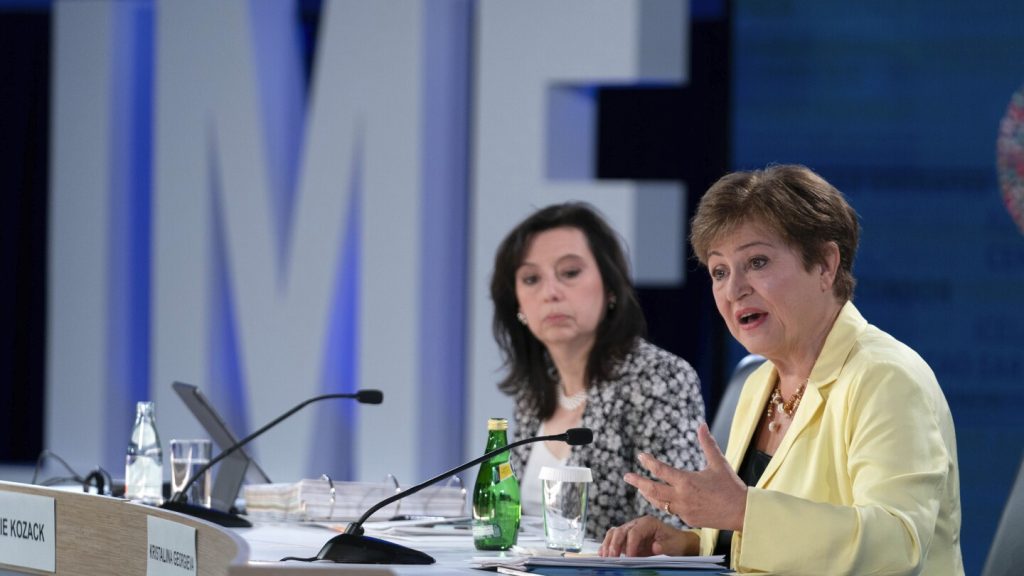In a recent warning, the head of the International Monetary Fund (IMF) expressed concerns about the world economy becoming stuck in a slow-growth, high-debt cycle. The IMF predicts a global economic expansion of 3.2% this year, which is considered anemic. Global trade has been lackluster due to conflicts and growing geopolitical tension, particularly between the United States and China. Additionally, many countries are grappling with high levels of debt incurred during the COVID-19 pandemic, with government debts expected to top $100 trillion this year, equal to 93% of global economic output.
Despite these challenges, the IMF notes some positive developments, such as the progress made in curbing inflation that spiked in 2021 and 2022. Higher interest rates set by central banks and the easing of supply chain disruptions have helped alleviate price pressures. The IMF expects inflation in wealthy countries to drop to the 2% target set by central banks next year. Overall, the organization sees a soft landing for the global economy, with improved economic prospects on the horizon.
However, many people continue to face high prices and economic uncertainty, leading to concerns about the well-being of ordinary individuals. While world leaders claim that their economies are relatively healthy, there is a disconnect with how people perceive their own economic situations. The IMF, tasked with promoting economic growth and financial stability while reducing global poverty, emphasizes the importance of addressing these disparities to ensure inclusive growth and prosperity for all.
In its latest World Economic Outlook report, the IMF lowered its growth projections for the Chinese economy, citing a shift away from export dependence towards consumer spending as a more sustainable path to growth. The IMF urged Chinese leaders to take decisive action to stimulate their economy and boost consumer confidence, particularly in the wake of a collapse in the Chinese property market. Failure to implement necessary reforms could result in a significant slowdown in China’s potential growth rate, underscoring the importance of proactive measures to sustain economic momentum.
The IMF’s managing director, Kristalina Georgieva, emphasized the need for coordinated global efforts to address the challenges facing the world economy. She highlighted the importance of structural reforms, fiscal policies, and financial stability measures to ensure sustainable growth and prevent the global economy from stagnating in a high-debt environment. By taking preemptive action and implementing targeted policies, countries can navigate through uncertainties and foster a more resilient and inclusive economic recovery for all. Georgieva’s call for decisive action underscores the urgency of addressing economic vulnerabilities to pave the way for a more prosperous future for the global economy.


